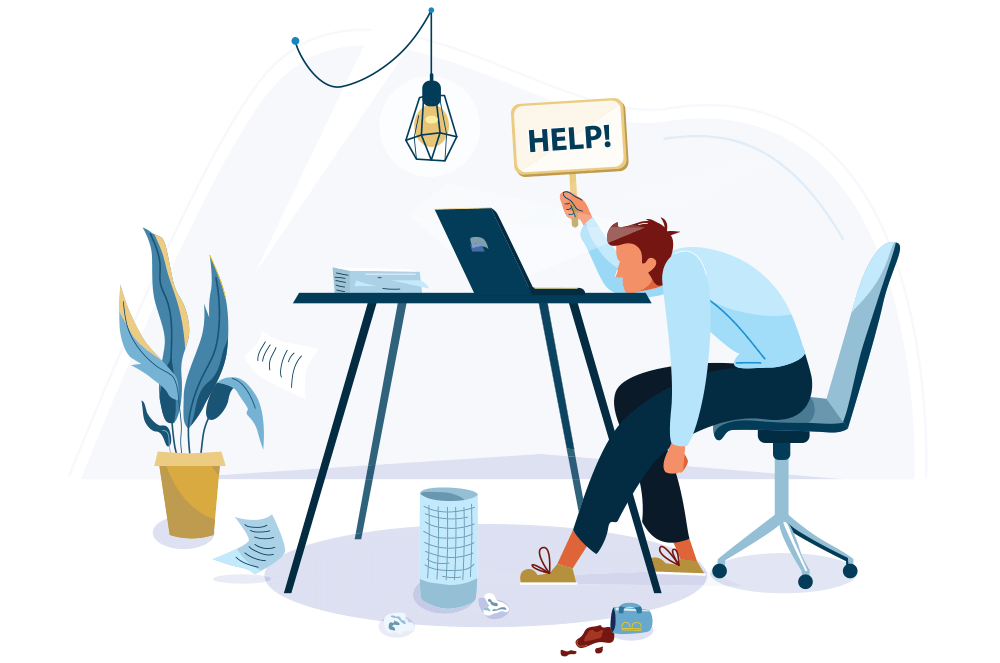
If you’re a high-achieving individual, you probably take on too much and push yourself too hard in your personal or professional life. Maybe you sign up for multiple meeting roles in your Toastmasters club, say yes to extra projects at work, or agree to host your entire family for the holidays. This type of overcommitment can cause burnout.
Living with constant stress can lead to feelings of exhaustion, disillusionment, and a lack of motivation. Learn how you can create positive patterns to avoid burnout in your work, personal life, and Toastmasters.
In this Toastmasters Podcast episode, business coach Sara Mayer provides tips for how to keep burnout at bay.
Defining and Identifying Burnout
Burnout is a term that has been thrown around quite a bit recently. We all know it’s bad, but do we know what it is, why it occurs, and how to identify it? Burnout is a state of emotional, physical, and mental exhaustion caused by prolonged stress. It’s a state where you feel depleted and unable to cope with the demands of your daily life. If you are constantly feeling overwhelmed, exhausted, and disengaged, then you may be experiencing burnout. It can lead to decreased performance and motivation, feelings of detachment, and cynicism.
Incorporating positive behavioral patterns into your daily routine can reduce stress and improve your overall well-being.
One of the most important steps in avoiding burnout is to recognize it early. Some of the most common signs include feeling tired, irritable, and unmotivated. You may also feel distant from or uninterested in your work or personal life. Other symptoms include physical and mental fatigue, a lack of interest in activities you used to enjoy, and a decrease in productivity. If you’re feeling overwhelmed and unable to cope with responsibilities, this could be a sign that you’re experiencing burnout.
Common Behaviors That Cause Burnout
Procrastination, passive-aggressive behavior, saying yes to everything, taking on too many responsibilities, eating poorly, not getting enough sleep, and “couch potatoing”—these are all behaviors that can lead to burnout. If these behaviors continue for some time, then they can become habits, and eventually cause stress and anxiety, leading to burnout. Let’s explore each of these potential habits.
- Procrastination: Procrastination is a common habit, and when we put off important tasks until the last minute, we create unnecessary stress and anxiety for ourselves.
- Passive Aggression: Passive-aggressive behavior, such as avoiding conflict or refusing to communicate directly, can lead to frustration and tension in relationships. This can create a hostile work or personal environment.
- Saying Yes to Everything: Many of us have a hard time saying no, even when we’re already overwhelmed with responsibilities. Taking on too much can lead to being overwhelmed and stressed.
- Eating Poorly: Eating a diet that’s high in sugar, fat, and processed foods can lead to fatigue, mood swings, and decreased productivity. This can make it harder to focus and maintain energy levels.
- Not Enough Sleep: Sleep is essential for our physical and mental health. Just like when you eat poorly, not getting enough sleep can also lead to fatigue, mood swings, and decreased productivity, similarly making it harder to focus and maintain energy levels.
- “Couch Potatoing”: Spending too much time on the couch, watching TV, or engaging in other sedentary activities for prolonged periods trains your body and brain to also become inactive, which can lead to decreased physical and mental health.
While it may be hard to adjust your behaviors at first, starting small can make a big difference. Here are nine tips to get started:
1 Take focused action.
Identify the most important tasks you need to accomplish each day and focus on completing them. Avoid multitasking and try to concentrate on one task at a time.
2 Schedule.
Use a planner or scheduling app to plan your day in advance. Schedule breaks and time for activities that you enjoy, such as reading, exercising, or spending time with loved ones.
3 Be straightforward.
Communicate openly and honestly with colleagues and loved ones about your needs and limitations. Say no when necessary.
4 Set boundaries.
Learn to say no to requests that are not important or urgent. Establish boundaries around your time and energy.
5 Delegate.
Learn to delegate tasks to others when possible. Avoid taking on too much responsibility.
6 Nourish your body.
Eat a healthy diet, drink plenty of water, and avoid consuming too much caffeine or alcohol.
7 Create restoration time.
Take some time off work, if possible. Go on a vacation or take a staycation.
8 Exercise.
Regular exercise can help reduce stress and improve your mood. Find an activity you enjoy and make it a regular part of your routine.
9 Set a bedtime.
Aim to get seven to eight hours of sleep each night. Create a relaxing bedtime routine to help you wind down.
In this episode of Sara Mayer’s podcast, she shares advice on changes you can make to end burnout.
Incorporating these positive behavioral patterns into your daily routine can reduce stress and improve your overall well-being. If you do find yourself experiencing burnout, it’s important to take action to pull yourself out of it. For example, if you’re a club officer, delegate tasks to others when feeling overwhelmed. You can also set boundaries to ensure you don’t take on too much (such as avoiding taking on meeting roles too frequently).
By identifying and changing your behavioral patterns, you can avoid burnout and maintain a healthy work-life balance. Remember to check in with yourself regularly, get enough sleep and movement, set boundaries, and delegate tasks when necessary.
Sara Mayer, DTM is a strategic business consultant who believes you can set and crush bold goals without working double-time. Learn more at www.saramayer.com, and grab a copy of Sara’s Goal Reflection worksheet.



 Previous
Previous

 Previous Article
Previous Article

